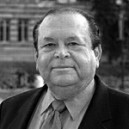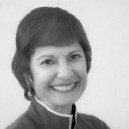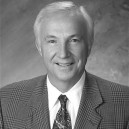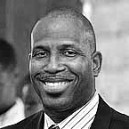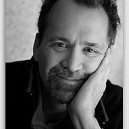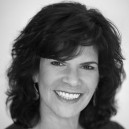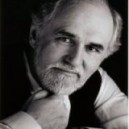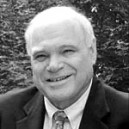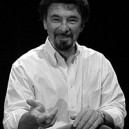Dr. Zane Zheng
Neuropsychologist
 Zane Zheng, PhD, is an Assistant Professor of Psychology; Faculty Fellow at Fuss Center for Research on Aging, Lasell College.
Zane Zheng, PhD, is an Assistant Professor of Psychology; Faculty Fellow at Fuss Center for Research on Aging, Lasell College.
His scholarly interests include exploring, by using a combination of behavioral paradigms and brain measurements, the cognitive and neural mechanisms of two remarkable human abilities: speech perception and self-awareness, with a particular focus on how these cognitive processes change as a result of natural aging. His research has won presentation/abstract awards at both regional (Southwest Ontario) and international conferences (Human Brain Mapping), and has appeared in well-respected journals including Journal of Neuroscience, Journal of Cognitive Neuroscience, NeuroImage, etc. Professor Zheng has been affiliated with Brandeis University as a Research Fellow since 2013, and selected as a Faculty Fellow at Fuss Center for Research on Aging and Chair of Ethics Committee at Lasell since 2014.
Dr. Zheng, why do you feel the field of neuropsychology is gaining increased interest and greater recognition as a subfield of psychology?
The human brain is like a black box, processing received information as input and producing behavior as output. The fundamental goal of psychology is to unravel the myths of the black box to better understand the human behavior. The field of neuropsychology is arguably the most promising way to achieve this goal, thanks to the development of cutting-edge technologies geared towards directly studying the brain activity. There are a lot of interesting and important questions being asked and the entire field of neuropsychology benefits tremendously from the insights and progress gained in many other disciplines including math, computer science, biology and physiology, engineering etc. As a result, the field becomes increasingly more interdisciplinary, drawing talents from many different backgrounds, all driven by the same native curiosity of understanding ‘who we are’.
What are the differences between a neuropsychologist and a neuroscientist?
Neuroscience is a very broad field of study; you can be a biologist studying neural circuits in the lobster nervous system and be called a neuroscientist, or you can be a mathematician modeling the neural networks in the human brain and still be called a neuroscientist. In contrast, neuropsychologists are more specifically interested in exploring the human brain mechanisms for the purpose of explaining psychological behavior and traits, which is only one of the streams of neuroscience. That said, I don’t think many streams are as clearly differentiated as they should be, and there is certainly some overlap among different streams there.
Learn more about about becoming a neuropsychologist.
Can you explain your research and your role within the field of neuropsychology?
My research is concerned with understanding how the brain works to facilitate speech communication and sense of self. During my graduate studies, I worked on a few projects that examined the brain networks involved in monitoring and controlling self-produced speech, which allowed me to appreciate the complexity and sophistication of the underlying mechanisms that support the seemingly effortless speech perception in most situations. One other thing about self-produced speech is the identity of the voice – we did an experiment where we replaced the self-produced voice with a pre-recorded voice in real-time and found that participants actually felt that the recorded voice was their own voice. This spin-off project got me thinking about a few issues related to the general sense of self vs. other, and this has evolved into another line of research in my lab now. My recent interest in aging has grown out of my research in both speech and self-awareness – we have been interested in exploring whether and how young and older adults may differ in these abilities.
Doing research is my passion. Being in a liberal arts environment, another passion I have is to promote research among students who have had little or no exposure to the meaning and significance of empirical research. I think that there may be very gifted and creative students out there who may become super-stars in the field one day, and our role as an educator is to provide them with opportunities and inspire them to ‘try it out’. I personally find supervising students and spending time with them on lab work one of the most rewarding experiences I have had as junior faculty. http://www.zzhenglab.com
How did you become interested in this field?
I stepped into this field by accident. I was an engineering major and for my first Master’s degree, I worked on developing mathematical algorithms and computer simulations for optimizing magnetic resonance imaging (MRI), a tool that is widely used to visualize brain anatomy. This is how I got exposed to the fascinating world of brain imaging and the more I studied, the more intrigued I became. I decided to focus more on the applications of brain imaging and explore the functions of the human brain as well as their relationships to specific psychological behaviors for my second Master’s and Ph.D. I am so glad that I made the switch, knowing that I am part of a rapidly growing field that could potentially make a real difference in people’s lives.
What advise would you have for students wishing to enter this field (specifically cognitive neuroscience)?
This is a very exciting yet challenging field, so understanding what it is very important. Some students may wish to enter the field just because it is ‘hot’ or popular, but succeeding in this field requires serious commitments and dedicated work. For one thing, it is a rapidly growing field, which means that one needs to have sufficient knowledge and courage to push the envelope and explore the unknown territory. For another, cognitive neuroscience is not one of those fields that would likely reward you with a high-paying job after training. Some people in this field end up being researchers, which may require a PhD as well as years of post-doctoral experience. So if you think of the ‘value’, it is certainly not appealing at all. My advice is to talk to your friends, mentors, and professors about your future plans and career goals, and understand as much as you can about the field as a whole. If you think you are up for it, get prepared as early as you can. It may turn out to be the best and most rewarding choice in your life.







